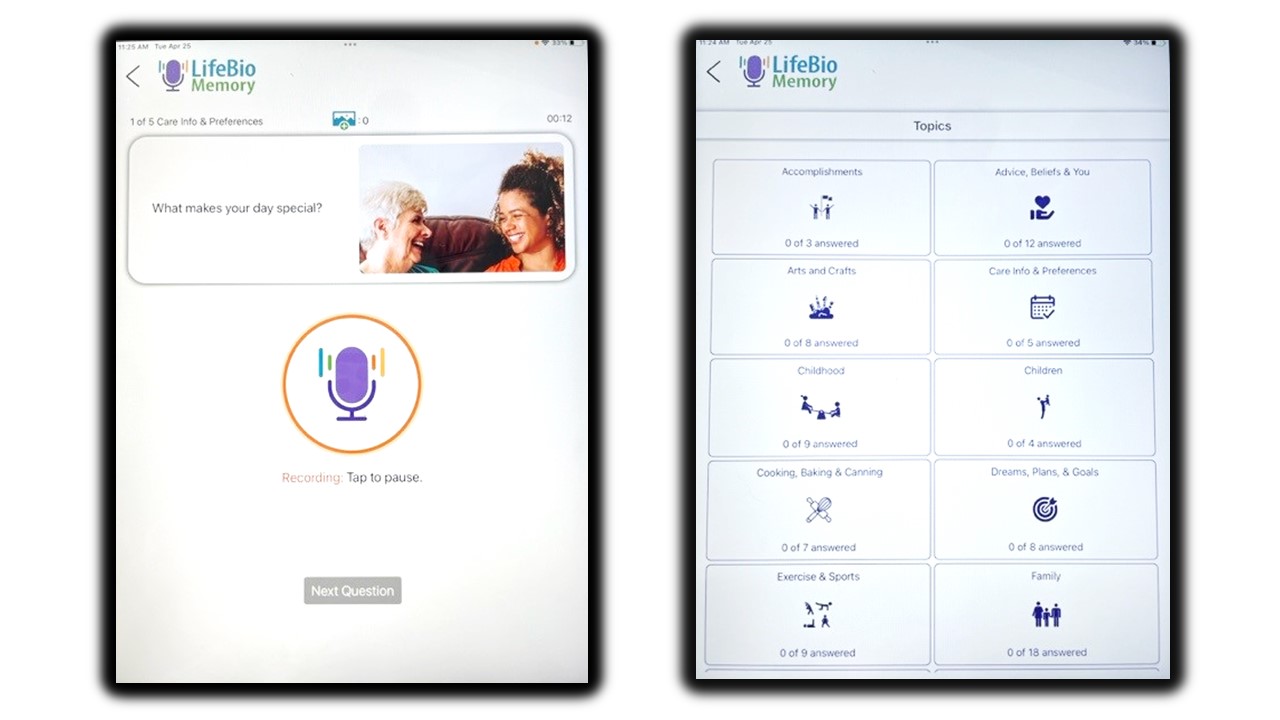The Power of Life Stories in Health Care
Every person has a story to tell. Storytelling is something we have experienced around the kitchen table or a warm campfire. Tales of great joy, tragedy, adventure, or love are told as we share our own human experiences with each other. Narrative and reminiscing are appropriate and useful in health care (narrative medicine, narrative care, humanities in medicine). It is also useful in daily life because: 1) Nearly anyone can participate in life review; 2) Life stories can help with a positive sense of identity; and 3) As people reach the end of their lives, it can result in integrity and reconciliation (Kenyon, et al. 2011, p. 291-292). It is especially helpful in the lives of older people as psychiatrist Dr. Robert Butler first documented in 1963; it comes naturally to reminisce with the familiarity and comfort of sharing about one’s past experiences, especially as people reach into their 60s, 70s, 80s, 90s, and beyond.
READ MOREWho is Your Family?
When you think about your family, who do you think of? Take just a moment to clear your mind and think about your own family. Do you think about your extended family or only your more immediate family? Perhaps you are married and have children that first come to your mind. Maybe you are in the empty-next stage and you now think about grandchildren or even great-grandchildren. Do you think back to your immediate family growing up, possibly including parents and siblings? Do you recall grandparents, aunts, and uncles? What about cousins, nieces, and nephews? Does your family include any half-siblings or adoptive family members? Do you have stepparents, stepchildren, or in-laws that are family? Do you limit family to those you are related to biologically, or do you also include friends and chosen family members? Do you include pets when you talk about your family?
READ MORECapturing the Essence of Your Life
You are amazing. Simply amazing. There is no one else like you. You can describe people, times, and places that no one else could ever share. You are completely unique and you should write a book. If you've always wanted to capture the essence of your life (or even if you've never thought about it until right now), it's a good idea to write an autobiography.
READ MORE5 Reasons Life Stories are Lost + 10 Sample LifeBio Questions
1. You may not think anyone wants to know your life story. You might think, “Who wants to hear about me?” Family and friends really do want this type of information recorded, but they may not have the time to help you do it. To your family and close friends, YOU are who they care about—more so than movie stars, sports heroes, or politicians. They would like to read your book. Too few people actually decide to move forward with their autobiographies. Only an estimated 6% of Americans capture their life stories. So many life stories are lost.
READ MOREFamily Gatherings are a Great Time for Capturing Life Stories
When you gather this Spring with family and friends, treasure those stories shared around the dinner table.
READ MOREFind meaning in memories: Learn how to capture your own life story
I was recently in Tallahassee, Florida for a special event at Westcott Lakes. Great fun! Here is the link to the article...
READ MOREThe future of the past
This is a unique time in history. Every man and woman has a voice. Their thoughts and opinions can be expressed for the world to read like never before. Everyone can easily have at least 15 minutes of fame. Now here's a revolutionary thought. What if everyone had an autobiography? What if you didn't have to be rich, famous, or unnaturally brillant to have your own 50-page or 100-page book of stories, memories, life lessons, and values?
READ MORE



